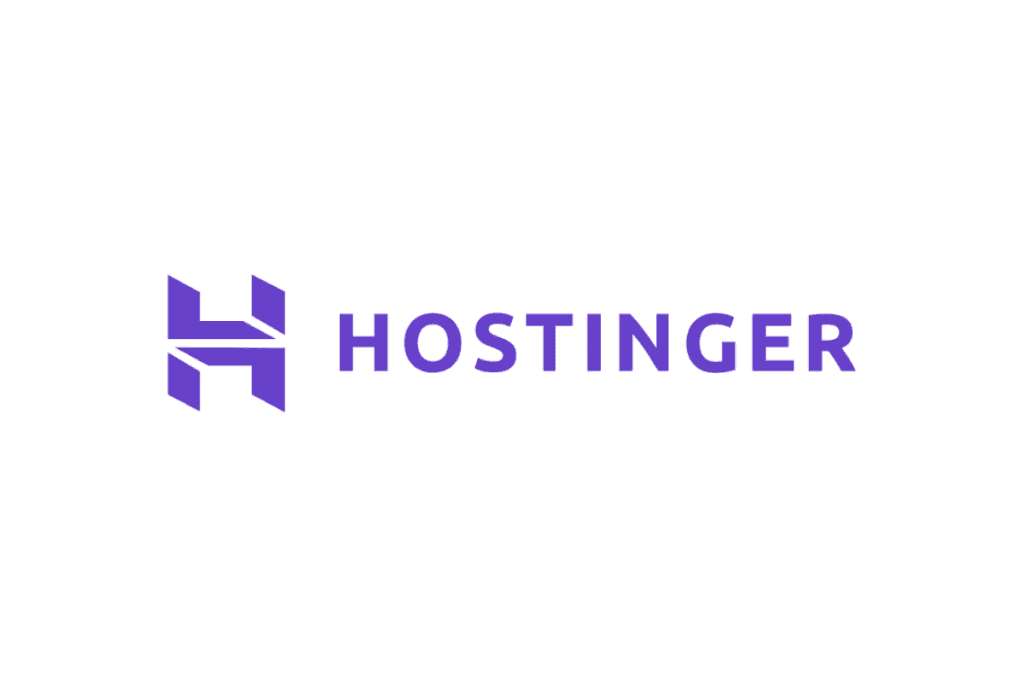
Finding the best web hosting provider for your website is a crucial decision that can define the success of your online presence. With dozens of companies offering seemingly similar services in Brazil and around the world, making the right choice can seem like a daunting task. However, with the right information and a clear understanding of your needs, you can select the best web hosting provider that will perfectly suit your project .
Understanding the Importance of Website Hosting
Before we dive into the comparisons between the different providers, it’s essential to understand the crucial role that hosting plays in the functioning of your website. Web hosting is the service that keeps your website online by storing all of your files, images, videos, and databases on powerful servers that are connected to the internet 24 hours a day.
A quality web hosting provider will ensure that your website is:
- Accessible at any time (high uptime)
- Loading quickly (good performance)
- Protected against cyber threats (security)
- Ready to grow as your needs change (scalability)
Inadequate hosting, on the other hand, can result in a slow website that is frequently offline, vulnerable to attacks and with limitations that impede its growth.
Types of website hosting available in the market
Before choosing the best web hosting provider , it is important to understand the different types of services offered, as each one meets specific needs:
Shared hosting
In shared hosting , several websites share the resources of the same server. It is the most economical option and widely used by small businesses and personal blogs.
Advantages:
- Lowest cost (from R$6.99/month)
- Easy to set up and manage
- Ideal for sites with moderate traffic
Disadvantages:
- Limited and shared resources
- Performance may be affected by other sites on the same server
- Less control over the server environment
VPS (Virtual Private Server) Hosting
In VPS hosting, a VPS divides a physical server into multiple virtual servers, each with dedicated resources. It is a middle ground between shared hosting and a dedicated server.
Advantages:
- Dedicated resources (CPU, RAM)
- Better performance than shared hosting
- More control over the environment
- Good scalability
Disadvantages:
- Highest price (from R$50/month)
- Requires more technical knowledge
- Still sharing physical hardware with other customers
Dedicated Server Hosting
With a dedicated server , you have an entire physical server at your disposal, offering maximum resources and control.
Advantages:
- Maximum performance and features
- Total control over the environment
- Greater security and privacy
- Ideal for high traffic sites
Disadvantages:
- Most expensive option (from R$300/month)
- Requires advanced technical knowledge
- More complex maintenance
Cloud hosting
Cloud hosting uses multiple connected servers, allowing for greater stability and scalability.
Advantages:
- High availability and reliability
- Simplified scalability
- Usage-based payment
- Fault tolerance
Disadvantages:
- Price may be less predictable
- Management complexity
- Potential data privacy concerns
WordPress Hosting
WordPress Hosting is specific for websites that use WordPress, this hosting is optimized to offer better performance for this CMS.
Advantages:
- Optimized for WordPress
- Automatic updates
- Pre-configured cache
- Specialized support
Disadvantages:
- Limitada a sites WordPress
- Generally more expensive than regular shared hosting
- Some restrictions on certain plugins
Fundamental criteria for choosing the best hosting provider
Now that we understand the types of web hosting , let’s look at the crucial factors that should be considered when choosing the best hosting provider:
1. Uptime and reliability
Uptime refers to the amount of time your website remains online. The best hosting providers guarantee an uptime of at least 99.9%. This means that your website would be offline for less than 43 minutes per month.
Reliability is essential because every minute your website is down represents lost potential customers and sales. A reliable provider offers:
- 99.9% or higher uptime guarantee
- Redundant infrastructure to prevent failures
- 24/7 server monitoring
- Proven track record of stability
Among the web hosting providers analyzed, Bluehost and Hostinger consistently have uptime above 99.9%, according to independent tests carried out in 2025.
2. Speed and performance
Website speed is a critical factor for both user experience and SEO . Studies show that 40% of visitors will abandon a website that takes more than 3 seconds to load.
To ensure good performance, look for web hosting providers that offer:
- SSD Servers (Faster than Traditional HDD)
- Advanced caching technology
- CDN (Content Delivery Network) integrada
- Servers in Brazil (for Brazilian audience)
- Updated versions of PHP, MySQL and other software
In speed tests carried out in 2025, Hostinger stood out with an average response time of 211.6ms, closely followed by Bluehost with 190ms.
3. Technical support
Technical support is often undervalued until you actually need it. Good support should offer:
- 24/7 availability
- Multiple contact channels (chat, phone, email, ticket)
- Service in Portuguese
- Technically qualified team
- Fast response time
Namecheap and HostGator are frequently praised for their technical support, with average response times of less than 5 minutes on chat.
4. Features offered
Available features vary significantly between providers and plans. Consider what is essential for your project:
- Disk space (SSD preferred)
- Traffic/Bandwidth (unlimited is ideal)
- Number of websites that can be hosted
- Email accounts included
- Databases
- Free SSL Certificates
- Automatic backups
- Website Builder
- Automatic installers (Softaculous, Installatron)
- Free domain
5. Security
Security should be a top priority when choosing a hosting provider. Check if the provider offers:
- Firewall
- DDoS Protection
- Free SSL Certificates
- Security monitoring
- Regular backups
- Automatic software updates
- Account isolation (especially on shared hosting)
6. Scalability
Your online business will likely grow over time, and you’ll need a host that can grow with it. Make sure your provider offers:
- Easy plan upgrades
- Hassle-free migration
- Vertical and horizontal scalability options
- Features that can be added on demand
7. Price and value for money
Price is obviously an important factor, but it should be considered in relation to the value offered. Key points:
- Initial price vs. renewal price (many providers offer big discounts on first-time purchases only)
- Minimum contract period
- Money Back Guarantee
- Cancellation policies
- Features included in the base plan
Analysis of the best hosting providers in 2025
Based on extensive testing, user reviews, and expert analysis, we present the best web hosting providers options available today:
Hostinger

Hostinger has established itself as one of the most popular global providers, with a strong presence in Brazil .
Strengths:
- Extremely competitive prices (starting at R$6.99/month)
- Excellent performance with an average response time of 211.6ms
- Intuitive proprietary control panel
- Free SSL Certificate
- Free domain for the first year
- 24/7 support in Portuguese
- 30 day guarantee
Weaknesses:
- Daily backups only on more expensive plans
- Promotional prices require long-term contract (48 months)
- Support may have variable response times during peak periods
Ideal for: Personal projects, blogs, small businesses, and beginners on a budget.
HostGator

HostGator is one of the largest hosting companies in the world, with a strong presence in Brazil since 2007 .
Strengths:
- Excellent value for money (plans starting at R$6.89/month)
- Uptime consistently above 99.9%
- Free SSL certificate on all plans
- Intuitive cPanel Dashboard
- Free domain for 1 year
- 24/7 technical support in Portuguese
- Free migration
Weaknesses:
- Datacenters located in the USA (may affect speed for Brazilian audiences)
- Higher than promotional renewal prices
- Some advanced features only on higher plans
Ideal for: Small and medium-sized businesses, professional blogs and beginner e-commerces.
KingHost
KingHost is a Brazilian hosting company known for its quality of service and innovation.
Strengths:
- Servers located in Brazil
- Great performance for national audience
- Free SSL on all plans
- Fast and qualified technical support
- Intuitive interface
- Simple installation for WordPress and Joomla
- Options in Google Cloud
Weaknesses:
- Higher prices than international competitors
- Tighter disk space limit on basic plans
- Domain not included for free
Ideal for: Brazilian companies that prioritize local servers and quality support.
SiteGround
SiteGround is recognized worldwide for the superior quality of its services, especially for WordPress.
Strengths:
- Exceptional performance
- Advanced technologies such as proprietary caching
- Free SSL Certificates
- Automatic updates
- Daily backup
- High-level specialized technical support
- Robust infrastructure
Weaknesses:
- Higher than average prices
- Servers outside Brazil
- Limited Portuguese support
- Entry-level plans with more restricted features
Ideal for: Professionals, digital marketing agencies, and medium to large WordPress sites.
Locaweb
Locaweb is one of the pioneers in hosting in Brazil, with over 20 years in the market.
Strengths:
- Servers in Brazil
- Options for Linux and Windows
- Unlimited disk space feature
- Free SSL for 1 year
- Dedicated Email Accounts
- Multiple support channels
- Own infrastructure
Weaknesses:
- Significantly higher renewal price
- Paid SSL certificate after the first year
- Less modern interface than competitors
Ideal for: Brazilian companies looking for a national provider with a tradition in the market.
Analyzing specific plans for different needs
Depending on the type and size of your project, different plans may be more suitable. Let’s look at specific recommendations:
For blogs and personal websites
If you are starting a personal blog or website, you probably don’t need advanced features or large capacity. Recommendations:
Best value for money : Hostinger Premium ($12.99/month)
- 100 sites
- 100GB SSD storage
- Unlimited bandwidth
- Free SSL
- Free domain
Budget alternative : HostGator Plan P ($6.89/month)
- 1 site
- 50GB SSD storage
- Unlimited traffic
- Free SSL
- Free domain for 1 year
For small businesses
Small businesses need reliability, good performance and professional resources:
Best Overall Option : HostGator Plan M ($10.99/month)
- Hosting for 2 websites
- 100GB SSD storage
- Unlimited bandwidth
- Free SSL Certificate
- Weekly backups
- Website Builder
Premium alternative : KingHost Empresarial I (R$ 31.40/month)
- Hosting for 3 websites
- 30GB storage
- Unlimited emails
- Server in Brazil
- Free SSL
- Priority support
For e-commerce
Online stores have specific needs, mainly in terms of security, performance and stability:
Best Plan : SiteGround GrowBig ($13.99/month)
- Multiple sites
- 20GB storage
- Unlimited visitors
- Free CDN
- Advanced staging
- Daily backups
- Optimized for WooCommerce
National alternative : Locaweb E-commerce (R$ 34.90/month)
- Integrated e-commerce platform
- Free SSL
- Free domain
- Support for multiple payment methods
- Servers in Brazil
For developers
Developers often need more control and technical resources:
Best technical option : Umbler (from R$24/month)
- Integrated Git
- Multiple PHP versions
- One-click staging
- Free SSL Certificate
- Alta performance
- Autoscaling
VPS Alternative : HostGator VPS (from $89.95/month)
- Dedicated resources
- Root access
- Scalability
- Alta performance
- cPanel/WHM included
Evaluating the ideal hosting for WordPress
Since WordPress is the most popular CMS in the world, many people are specifically looking for the best WordPress hosting. Looking at performance, features, and specific optimizations, we recommend:
Managed WordPress Hosting
SiteGround GoGeek ($24.99/month)
- Optimized for WordPress
- WordPress-specific cache
- Automatic updates
- Advanced staging
- Daily backups
- Free WordPress Migration
- Collaborator Tools
WP Engine (starting at USD 25/month)
- Specialized WordPress environment
- EverCache proprietary cache
- CDN global
- Staging environment
- Specialized WordPress Support
- Free migration
Budget WordPress Hosting
Hostinger WordPress (from $12.99/month)
- Optimized for WordPress
- Intuitive interface
- LiteSpeed Cache
- Acceleration with advanced caching
- WordPress pre-installed
- Automatic updates
HostGator WordPress (from $9.95/month)
- WordPress pre-installed
- Easy control panel
- Automatic updates
- Specialized WordPress Support
- Free SSL
How to evaluate server locations
The location of your hosting provider’s servers has a direct impact on your website’s speed. For Brazilian audiences, servers located in Brazil generally offer better performance. However, there are other factors to consider:
Advantages of servers in Brazil:
- Lower latency for Brazilian visitors
- Best response time
- Possibility of compliance with Brazilian legislation (LGPD)
- Lower chance of packet loss on national networks
Considerations about international servers:
- Servers in the US may have more robust infrastructure
- CDNs can mitigate the physical distance of servers
- For global audience, international servers may be better
- International data centers generally have more security certifications
Among the providers analyzed, KingHost, Locaweb and UOL Host have servers in Brazil. Hostinger, HostGator and SiteGround use international data centers, but offer CDN to improve global performance.
Real Costs: Initial Price vs. Renewal
One critical aspect that is often overlooked is the difference between the initial promotional price and the renewal price. Here’s a transparent comparison:
| Provider | Starting Price | Renewal Price | Increase % |
|---|---|---|---|
| Hostinger | R$ 6.99/month | R$ 14.99/month | 114% |
| HostGator | R$ 6.89/month | R$ 17.20/month | 150% |
| KingHost | R$ 14.00/month | R$ 31.40/month | 124% |
| Locaweb | R$ 7.90/month | R$ 24.90/month | 215% |
| GoDaddy | R$ 7.99/month | R$ 34.99/month | 338% |
As you can see, the increase at the time of renewal can be significant. So when calculating the real cost of hosting, consider the total period you intend to maintain the website.
To save in the long run:
- Hire longer periods during the initial promotion
- Look for providers with the smallest difference between initial and renewal price
- Negotiate discounts at renewal time
- Be open to migrating to a more cost-effective provider when necessary
The role of CDN in hosting quality
A CDN (Content Delivery Network) is a content distribution network that stores copies of your website on servers located around the world. When a visitor accesses your website, the content is delivered from the closest server, resulting in:
- Faster loading
- Lower resource consumption of the main server
- Additional protection against DDoS attacks
- Greater availability in case of traffic peaks
Many of the best hosting providers include CDN in their plans:
- Hostinger: Cloudflare Integration
- SiteGround: Proprietary CDN and Cloudflare Integration
- HostGator: Optional Cloudflare Integration
If your provider doesn’t offer an integrated CDN, you can set up Cloudflare’s basic plan for free, which already provides significant performance and security benefits.
SSL Certificates: Essential for Any Modern Website
SSL (Secure Socket Layer) certificates have gone from being a differentiator to an absolute necessity. They guarantee:
- Secure connection between the visitor’s browser and your server
- Encryption of sensitive data
- Better positioning in search results (Google favors HTTPS sites)
- Increased visitor confidence (browsers mark sites without SSL as “not secure”)
The good news is that most of the best hosting providers already include free SSL certificates in all their plans. Among those reviewed:
- Free permanent SSL : Hostinger, HostGator, KingHost, SiteGround
- Free SSL for a limited time : Locaweb, GoDaddy (1 year free)
When choosing your hosting, make sure the SSL certificate:
- It is renewed automatically (usually every 90 days)
- Supports all subdomains if needed
- It is trustworthy (like Let’s Encrypt or Comodo)
- It is easy to install (ideally with 1 click)
Backups: Your Essential Safety Net
No matter how reliable your hosting provider is, regular backups are essential to protect your website against:
- Human errors (such as accidentally deleting important files)
- Malware e ransomware
- Technical problems with the server
- Updates with problems
- Malicious hackers
When evaluating a provider’s backup policy, check:
- Frequency : Daily is ideal, weekly is the minimum acceptable
- Retention : How long backups are kept
- Accessibility : How easy is it to restore a backup?
- Storage : Whether backups are stored in a different location than the main server
- Cost : Whether backups are included in the plan or charged separately
Among the providers analyzed:
- Daily Backup Included : SiteGround, WP Engine
- Weekly Backup Included : HostGator (higher plans)
- Backup como add-on: Hostinger, KingHost, Locaweb
If your provider doesn’t offer proper backups, consider third-party solutions like UpdraftPlus (for WordPress) or perform manual backups regularly.
E-commerce resources
If you are planning to open an online store, there are specific features that your hosting provider should offer:
Validation SSL Certificate
While basic SSL certificates are sufficient for informational websites, online stores benefit from more advanced validation certificates:
- DV (Domain Validation) : Basic domain verification
- OV (Organization Validation) : Also verifies the owning organization
- EV (Extended Validation) : Extensive verification, shows company name in address bar
Compatibility with e-commerce platforms
Check if the provider supports the platform you intend to use well:
- Para WooCommerce (WordPress): HostGator, SiteGround, Hostinger
- For Magento: SiteGround, HostGator higher plans
- For PrestaShop: Hostinger, KingHost
- Para OpenCart: HostGator, Hostinger
PCI DSS Compliance
The Payment Card Industry Data Security Standard (PCI DSS) is a set of security requirements for companies that process card payments. Check to see if your provider offers:
- PCI DSS compliant environment
- Dedicated firewall
- Security monitoring
- Vulnerability scans
Performance and scalability
Online stores tend to grow and need hosting that can keep up with this growth:
- Ability to handle traffic spikes (like Black Friday)
- Easy Feature Upgrades
- Optimized cache for e-commerce
- CDN to deliver images quickly
Ease of migration: an often overlooked factor
If you already have a website and are considering switching hosting providers , the ease of migration should be a major factor in your decision. Some providers have made this process virtually painless, while others can make it complicated.
What to look for in terms of migration:
- Free Migration Service : Some providers will transfer your website for free
- Automated tools : That simplify the migration process
- Support during migration : Specialized technical assistance
- Minimal downtime : Migration with near zero downtime
- Email Preservation : Transferring Accounts and Email History
Among the best hosting providers analyzed:
- HostGator : Offers free migration of up to 30 sites and cPanel for new customers
- SiteGround : Automated WordPress Migrator and Free Migration Team for Higher Plans
- Hostinger : Free WordPress migration and paid migration service to other CMS
- KingHost : Migration assistance, but no automated tool
Evaluating technical support in practice
Technical support is one of the areas where the differences between providers are most evident. During our tests, we evaluated:
- Availability : Opening hours
- Channels : Chat, phone, email, tickets
- Language : Service in Portuguese
- Response Time : How long does it take to get help?
- Technical quality : Knowledge of the attendants
- Resolution : Effectiveness in solving problems
Based on tests performed on different days and times:
| Provider | Average response time | Available channels | Qualitative assessment |
|---|---|---|---|
| HostGator | 3 minutes | Chat, phone, ticket | Excellent technical knowledge |
| KingHost | 4 minutes | Chat, phone, ticket | Very good, well trained Brazilian team |
| Hostinger | 5-10 minutes | Chat, ticket | Good, but may vary during peak hours |
| SiteGround | 2 minutes | Chat, ticket, phone | Excellent, but limited in Portuguese |
| Locaweb | 8 minutes | Chat, phone, ticket | Good, but sometimes slow resolution |
Important tip: Test the support before hiring. Many providers offer pre-sale chat where you can evaluate the initial quality of the service.
How to test performance before purchasing
Ideally, you should be able to evaluate a provider’s performance before committing to a plan. While this isn’t always possible, there are alternatives:
1. Take advantage of warranty periods
Most providers offer a money-back guarantee:
- Hostinger: 30 days
- HostGator: 45 days
- SiteGround: 30 days
- KingHost: 7 slides
Use this period for intensive performance testing.
2. Analyze websites hosted by the provider
Ask for examples of sites that use the provider in question and analyze:
- Loading speed with tools like GTmetrix
- Stability over several days
- Performance in different locations
3. Use monitoring tools
During the testing period, implement tools such as:
- UptimeRobot (to monitor uptime)
- Pingdom (for speed)
- WebPageTest (for detailed analysis)
4. Load testing
If possible, perform load tests to see how your site performs under pressure:
- K6 (free load test tool)
- LoadImpact (more complete paid version)
- Apache JMeter (Free Advanced Tool)
Web Hosting Trends for 2025
The web hosting market is constantly evolving. Here are the main trends for 2025 that are worth considering when choosing a provider:
1. Massive adoption of NVMe SSD servers
Traditional SSDs are being replaced by NVMe SSDs, which offer speeds up to 7 times faster. Providers like Hostinger and SiteGround have already implemented this technology.
2. Hosting optimized for Core Web Vitals
With Google emphasizing Core Web Vitals metrics for SEO, providers are optimizing their services specifically to improve:
- LCP (Largest Contentful Paint)
- FID (First Input Delay)
- CLS (Cumulative Layout Shift)
3. Automated and proactive security
Instead of waiting for attacks, the best providers are implementing:
- Automatic malware detection and blocking
- Proactive protection against emerging threats
- Automated security updates
- Immutable backups against ransomware
4. Renewable energy and green hosting
With growing environmental concerns, renewable energy-based accommodations are gaining popularity:
- Servers powered by solar and wind energy
- Carbon offsetting
- Energy efficient infrastructure
5. Edge computing technologies
Content distribution to the “edge” of the network, closer to users:
- Serverless functions
- Advanced edge caching
- Distributed processing
Niche Providers: When They’re Worth Considering
While we’ve focused on the major providers, there are specialist companies that may be ideal for specific needs:
High performance hosting
If performance is your top priority:
- Kinsta : Specialized in WordPress, uses Google Cloud Platform
- Cloudways : Allows you to choose between several cloud providers (DigitalOcean, AWS, etc.)
- WP Engine : Exclusive focus on high-performance WordPress
Hosting for developers
For those who need a flexible development environment:
- Umbler : Developer-friendly interface, integrated Git
- DigitalOcean : Configurable Droplets with Extensive API
- Vultr : High performance at affordable prices
High traffic hosting
For sites that receive thousands of simultaneous visitors:
- LiquidWeb : Managed Dedicated Servers
- AWS : Scalable, Enterprise-Grade Infrastructure
- Google Cloud : High performance with easy scalability
Action plan for choosing the best hosting provider
Finally, let’s create a structured action plan that you can follow to choose the best hosting provider for your specific needs:
Step 1: Define your needs
Answer these questions:
- What type of website will you have? (blog, e-commerce, institutional, etc.)
- What monthly traffic do you expect initially?
- What budget do you have available?
- What technical features are essential? (advanced PHP, Node.js, etc.)
- Where is your main audience? (Brazil, international)
Step 2: Prioritize your criteria
Order these factors by importance for your case:
- Price
- Speed
- Technical support
- Security
- Reliability (uptime)
- Specific resources
- Server Location
Step 3: Search for aligned options
Based on the previous steps, research 3-5 providers that best meet your needs.
Step 4: Compare directly
Create a comparison table with:
- Features offered
- Initial and renewal price
- Guaranteed uptime
- Refund Policy
- Server Location
- Customer Reviews
Step 5: Test the support
Before hiring:
- Contact us via pre-sale chat
- Ask technical questions relevant to your case
- Evaluate response time and quality of service
Step 6: Take advantage of trial/warranty periods
After hiring:
- Deploy your website quickly
- Test performance intensively
- Check stability
- Test support again with real questions
Step 7: Continuously evaluate
Even after choosing a provider:
- Monitor performance regularly
- Assess whether your website needs have changed
- Keep an eye out for new market offers
Conclusion: Making the Right Choice of the Best Hosting Provider
Choosing the best hosting provider in Brazil is a crucial decision that directly impacts the success of your website. There is no single answer that fits all cases, as each project has specific needs.
For small and medium-sized websites focused on the Brazilian market, Hostinger and HostGator offer excellent value for money, with good performance and comprehensive features. For those who prioritize servers in Brazil, KingHost and Locaweb are solid alternatives. For projects that require exceptional performance and are willing to invest more, SiteGround and WP Engine stand out.
Remember that the cheapest provider isn’t always the best choice in the long run. Consider the overall value you get in terms of performance, reliability, support, and features. A slow or frequently down website will cost you far more in lost opportunities than the difference in quality hosting.
Finally, be prepared to reevaluate your choice periodically. As your site grows and your needs change, the provider that’s right for you today may not be the same one a year from now.
FAQs About Choosing the Best Hosting Provider
What is the difference between shared hosting and VPS?
In shared hosting, several websites share the resources of the same server, making it more economical, but with performance limitations. A VPS (Virtual Private Server) offers dedicated resources within a shared server, ensuring better performance and isolation.
Is it better to choose a Brazilian or international provider?
It depends on your target audience. Brazilian providers like KingHost and Locaweb offer servers in Brazil, which can result in better speeds for domestic visitors. International providers like Hostinger and HostGator usually have more competitive prices and robust infrastructure, but their servers may be located outside the country.
What loading speed is considered good for a website?
A good website should load in less than 3 seconds, preferably around 1-2 seconds. According to studies, 40% of users abandon websites that take more than 3 seconds to load. For e-commerce, each additional second of loading time can reduce conversions by up to 7%.
How do you know if a hosting provider really offers 99.9% uptime?
Don’t just take your provider’s word for it. Once you’ve signed up, use independent monitoring tools like UptimeRobot, Pingdom, or StatusCake to check your website’s actual uptime over time. Documenting downtime can also be helpful in claiming compensation under your SLA (Service Level Agreement) guarantees.
Do I need specialized WordPress hosting if my website uses WordPress?
It’s not mandatory, but WordPress-optimized hosting offers significant benefits: improved performance through dedicated caching, automatic updates, staging environments, and expert technical support. For WordPress sites with moderate to high traffic, specialized hosting is often worth the additional investment.
What is more important: speed or price of hosting?
Speed should generally take precedence over price, as it directly impacts user experience, conversion rates, and SEO. A cheaper but slower website can cost you far more in lost opportunities than the difference in quality hosting. However, for personal projects or low-traffic sites, a budget hosting may be sufficient initially.
How do I migrate my website to a new hosting provider without losing visitors?
For a safe migration: 1) Make a full backup of your current site; 2) Set up the new environment on the new provider; 3) Transfer all files and databases; 4) Test the site on the new server using the modified hosts file; 5) Update DNS nameservers only when everything is working; 6) Use a low TTL before the migration to speed up propagation. Ideally, do the migration during low traffic periods. Read the full guide !
Does SSD really make a difference in hosting performance?
Yes, SSD-based servers can be up to 20 times faster than traditional HDDs for read/write operations, resulting in significantly faster page load times, especially for dynamic database-driven websites. Additionally, SSDs are more reliable because they have no moving parts, reducing the risk of mechanical failure.
Are free SSL certificates as secure as paid ones?
Free SSL certificates like Let’s Encrypt offer the same level of encryption as many paid certificates, making them perfectly suitable for most websites, including small e-commerce sites. The main difference is the level of validation: paid certificates can offer organizational validation (OV) or extended validation (EV), which verifies the identity of the company, providing greater confidence to visitors on sites that handle sensitive data.
Should I care about datacenter location for my best web hosting?
Yes, datacenter location is relevant, especially if your target audience is geographically concentrated. For websites targeting Brazilian audiences, servers in Brazil or Latin America generally offer better response times. However, a good CDN (Content Delivery Network) can significantly mitigate latency issues, making server location less critical.




